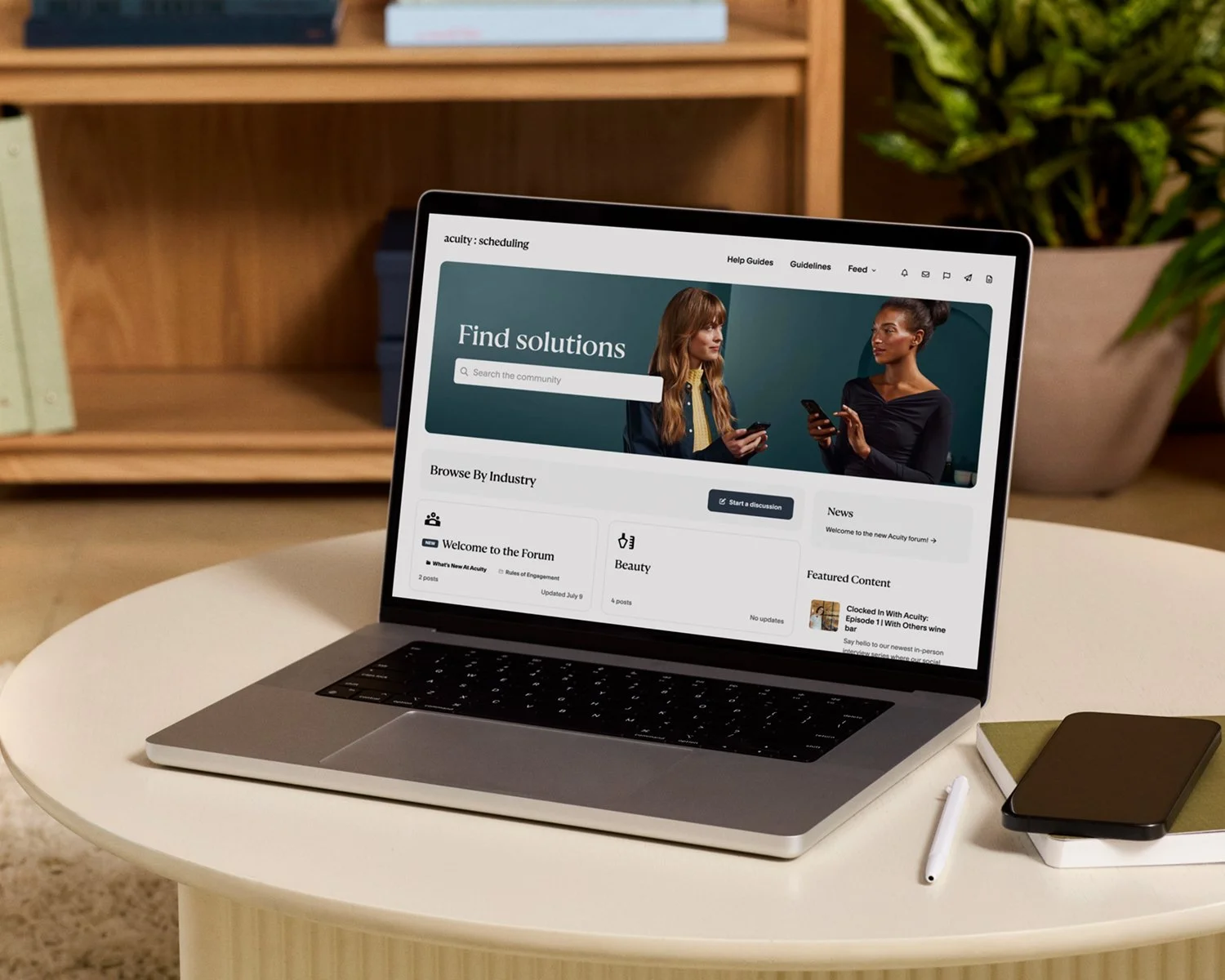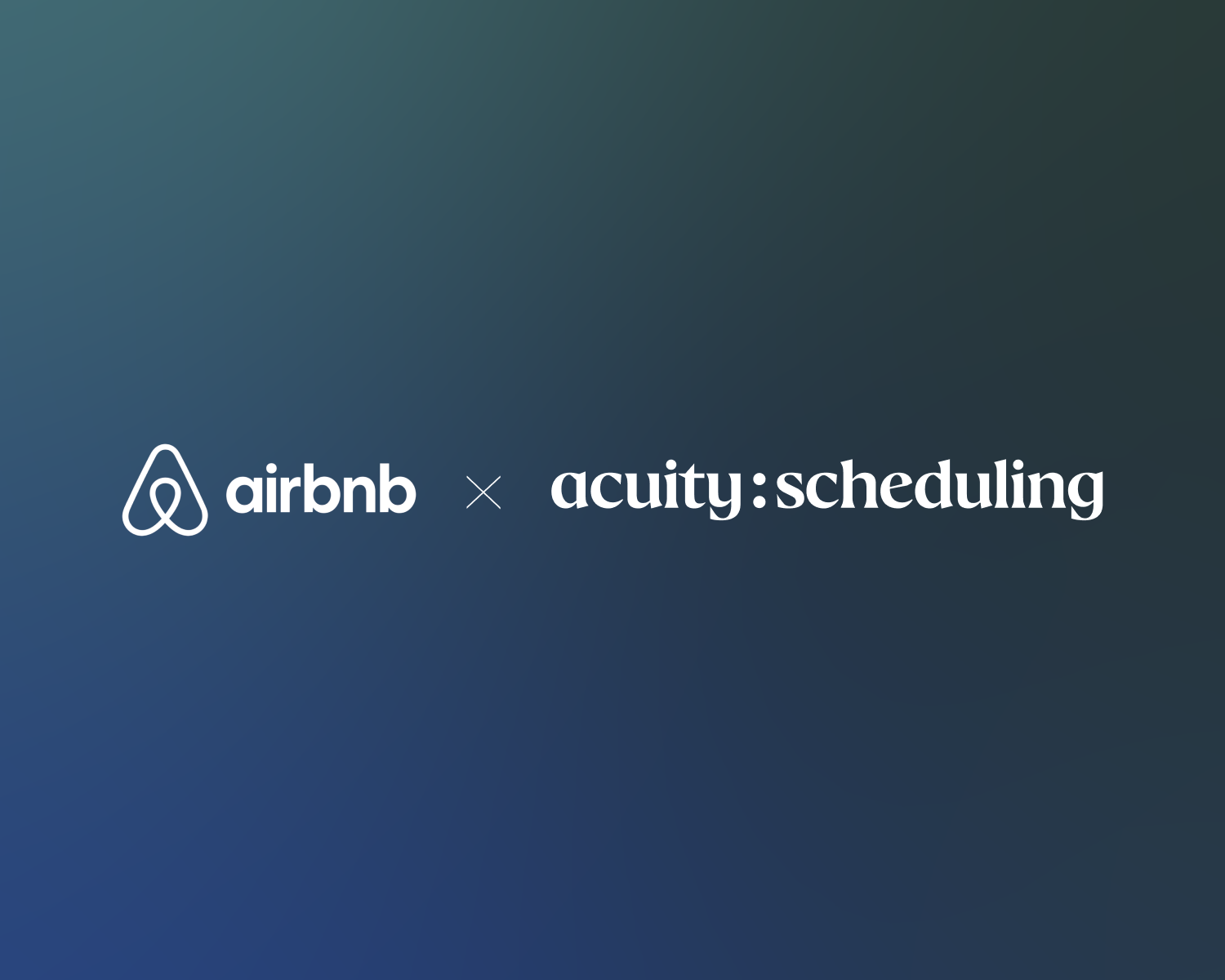3 motivi per introdurre intervalli tra gli appuntamenti
As a business owner, juggling back-to-back appointments can often feel like a race around the clock. Whether you’re managing a bustling hair salon, running a consulting firm, or coaching clients on their fitness and wellness journeys, every minute counts. What if there was a way to regain control of your schedule, ensuring that you, your team, and your clients have the time you need?
Acuity Scheduling’s appointment padding is designed to do just that. It’s a simple yet powerful feature that can make all the difference in how you manage your time and client interactions.
What is appointment padding?
Appointment padding enables you to add a buffer or gap before or after your appointments. This helps you allocate extra time for other things you need to do, like travel, clean-up, prep, or even just taking a well-deserved break.
If you typically book 30-minute appointments and you add 15 minutes of padding, Acuity will block off 45 minutes every time a client books that appointment. If there’s not enough time for the appointment’s duration plus the padding, Acuity won't display this as an available time slot on your client scheduling page, giving you the flexibility to manage your time more effectively.
Why you should use appointment padding
1. Avoid appointment overlaps
One of the most common scheduling mishaps is overlapping appointments, which can lead to rushed sessions, frustrated clients, and unnecessary stress. Add padding to appointments to ensure you have enough time between bookings, so you don’t end up double-booked or keeping clients waiting.
A massage therapist who typically books 60-minute sessions might consider adding a 15-minute padding period to avoid overlapping clients who need more attention post-session, creating a seamless experience for everyone involved.
2. Make more time for appointment prep time
Proper preparation is key to maintaining a high standard of service, whether it’s setting up a space, organizing materials, or reviewing notes about a client’s history and preferences. Use padding to give yourself that extra time to prepare for your next client without rushing. For example, a makeup artist might add 10 minutes of padding to each appointment to sanitize tools and organize products to ensure each client receives a fresh experience.
3. Guarantee smooth transitions between appointments
Transitions can be tricky, especially when moving from one service or client to another. Without enough buffer time, you might find yourself scrambling to switch gears, which can affect the quality of your work.
Padding helps create smooth transitions between appointments, giving you the breathing room to reset and refocus. Consider a life coach who needs time to jot down notes and prepare for the next client; adding just 15 minutes of padding between sessions ensures they’re ready to impress with a professional, personalized consultation.
How to add appointment padding to your scheduler
By incorporating padding into your scheduling routine, you can avoid overlaps, increase prep time, and create seamless transitions between your appointments, no matter what industry you’re in. Why not give it a try and see how it can help you take control of your schedule?
Adding padding is quick and easy from the Appointment types panel in Acuity. Visit the Acuity Scheduling help center to learn how to set up appointment padding for your business step by step, and get started today.



